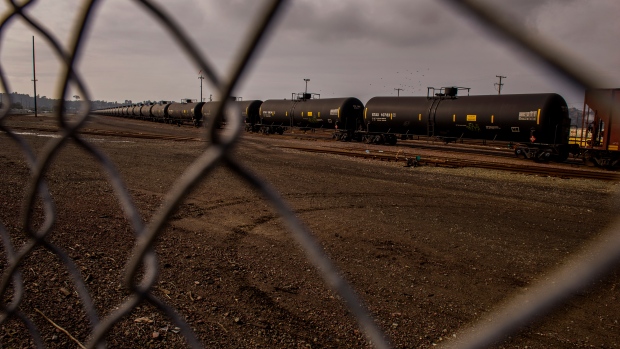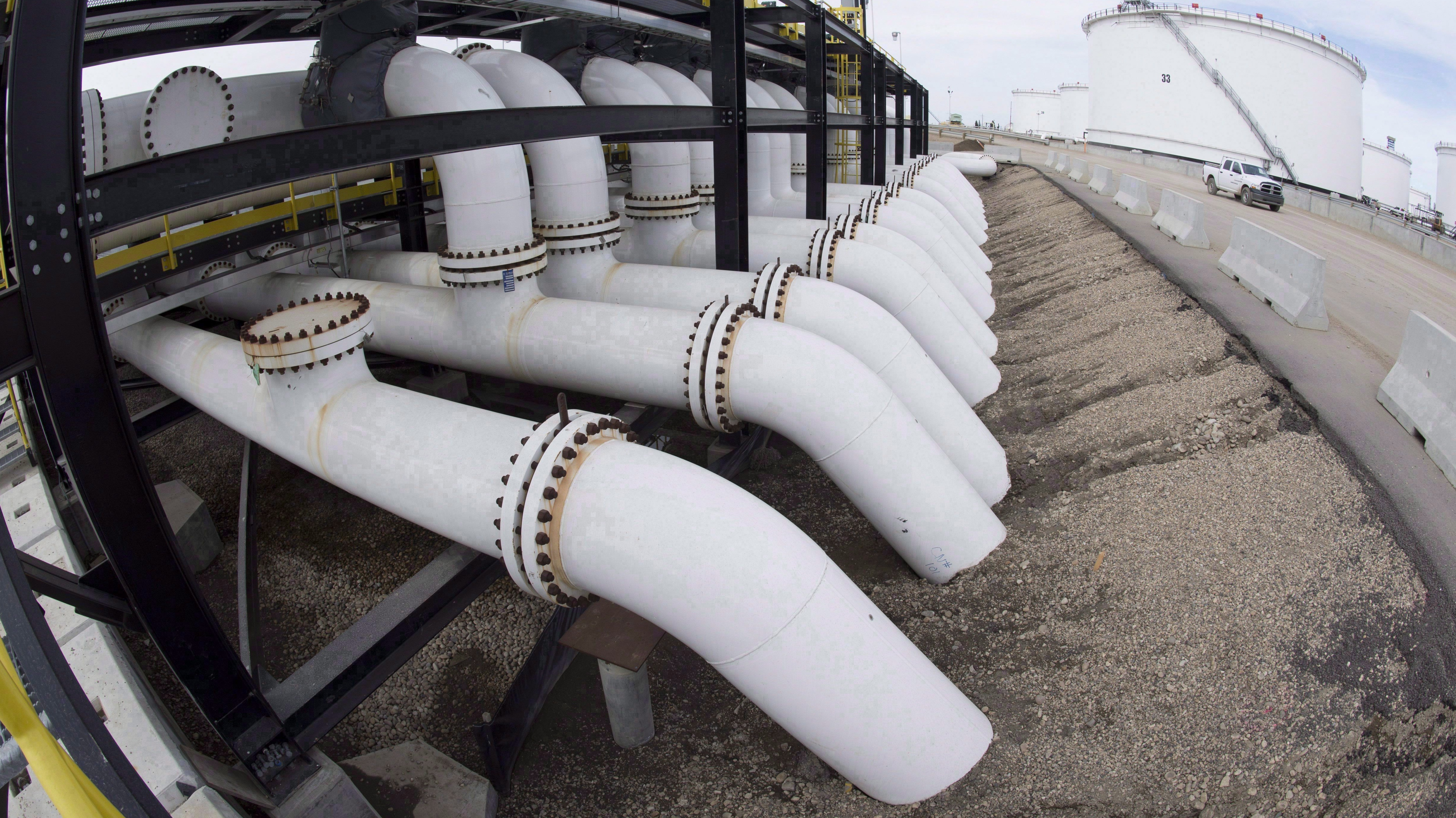Apr 9, 2018
Why crude-by-rail can’t save the oil patch if Trans Mountain dies

Trains could not compensate for the loss of the Trans Mountain pipeline expansion.
Roughly one million barrels worth of new daily production is expected to come online in northern Alberta by the end of this decade, but export pipelines leaving the area are already largely full. Backers of new pipelines such as the Trans Mountain expansion often argue against environmental opponents by claiming that extra crude will move on rail if new pipelines are not built; crude-by-rail being arguably a larger environmental risk.
The problem with that argument, however, is it is not true. Even under the most ambitious growth scenario, crude-by-rail capacity out of western Canada would not come close to offsetting all the lost capacity that would result from Kinder Morgan making good on its threat to kill the $7.4-billion project if it fails to win the clarity it seeks before a May 31st deadline.
Crude-by-rail volumes from western Canada peaked at an average of 179,000 barrels per day in September 2014, according to a report published by the International Energy Agency last month. Oil prices collapsed soon after, and since the cost of shipping crude oil on a train can be up to twice the cost of pipelines, crude-by-rail shipments fell sharply.
Another record could be achieved this year, the IEA report said, with volumes growing potentially as high as 250,000 bpd by the end of 2018. Next year, more than 390,000 barrels worth of crude oil could be leaving Alberta on trains daily, according to the IEA.
WEIGH IN

What’s the most likely outcome for the Trans Mountain Expansion?
It might seem like meteoric growth, but even if total crude-by-rail capacity manages to more than double its current record by the end of the decade, it would still fall well short of what the industry needs. To be specific, that total would be roughly 200,000 bpd below the extra 590,000 bpd that could fit into an expanded version of Trans Mountain compared to the pipeline’s current capacity.
And if you’re thinking the cancellation of Trans Mountain or another controversial pipeline project – Keystone XL – might incentivize Canadian railways to dramatically ramp up crude-by-rail capacity, think again. The IEA report’s crude-by-rail figures already factor in that possibility.
“We must acknowledge the substantial risks that [Trans Mountain and Keystone XL] will be delayed or even cancelled,” the March 5th IEA report said, “possibly due to legal action.”
Any effort from Canada’s two main railways to devote more resources to shipping crude oil would also likely face major opposition from Canadian grain farmers. Both CP Rail and CN Rail have been widely criticized over a severe rail car shortage that has left millions of tonnes of grain trapped in central Canada.
Asked if it would be possible to devote more capacity to crude-by-rail, CP did not immediately respond, while a CN spokesperson pointed BNN to previous comments from the railway noting railways should not be considered as a replacement for pipelines.





